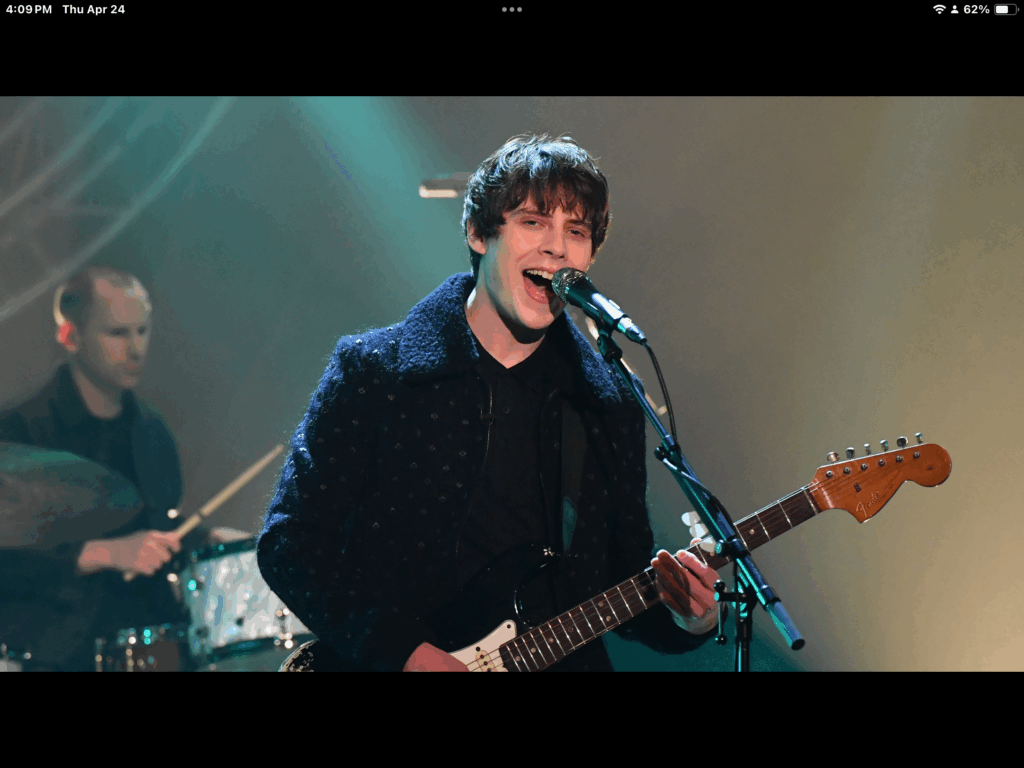Jake Bugg doesn’t sing so much as throw his voice across the room and dare it to hit the right notes on the way down.
It’s a beautiful gamble, especially in early career tracks like Lightning Bolt and Trouble Town, where his voice snaps with urgency—half skiffle, half snarl. He sings like a kid raised on factory noise and transistor radios, like a jukebox that’s learned to spit back poetry. It’s not clean. It’s not even always in tune. But it’s unmistakably his, which is rarer than range.
In Lightning Bolt, Bugg lobs syllables like bricks through a window. He races his guitar like he’s trying to outrun his own nerves, and that’s the charm. There’s no polish. No gloss. Just the ragged thrill of someone with something to say and no time to smooth the edges. He turns a three-chord burst into a manifesto: the world moves fast, fate hits harder, and you better duck or sing the fuck through it.
Then comes Trouble Town, and the tremble creeps in. His voice grows slighter, shakier—not weaker, just more honest. There’s ache underneath the twang, resignation beneath the swagger. He doesn’t shout the blues, he mutters them like a secret you weren’t supposed to hear. “Stuck in speed bump city,” he sighs, and you can feel the curb under your ribs.
That’s the genius of Bugg’s voice: it always sounds like it’s coming from someone half your size and twice your mileage. He’s not trying to wow you. He’s trying to outlast the noise.
And he does, because his voice isn’t trained. It’s weathered. Not smooth like sanded wood, but smooth like something worn by use. It’s the sound of England’s working class passed through a cracked amplifier and open bedroom window.
That odd wail can get monotonous, and it’s limited his career. That, too, is part of the allure.
He’s not the best singer in Britain. But that’s what makes him one of the catchiest.

